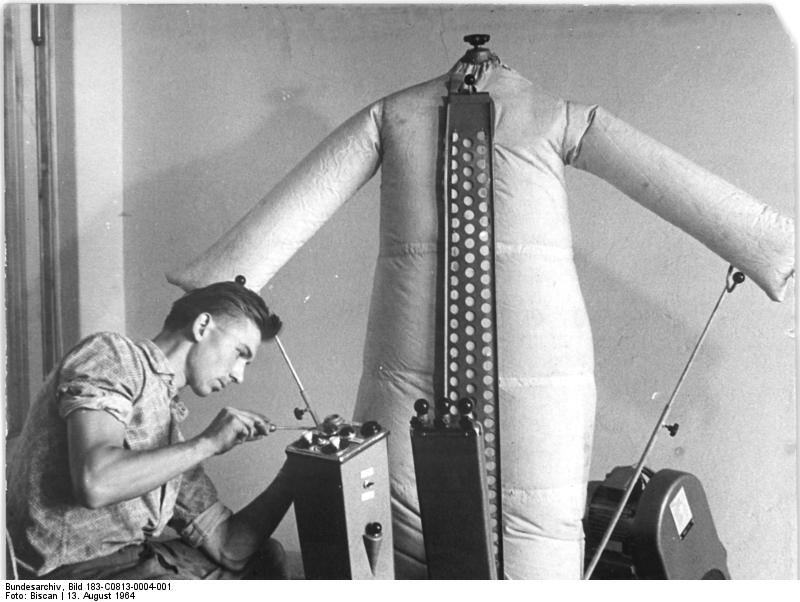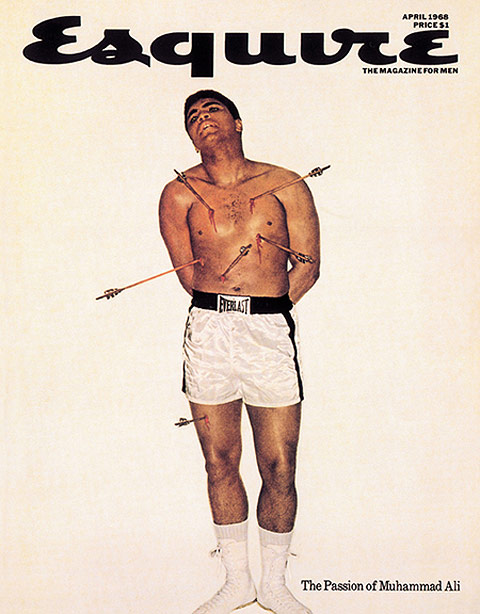Dental training robot from Japan. I am fairly certain dentists are having sex with these dolls after hours. Thank you, Obamacare.
From the July 11, 1885 Brooklyn Daily Eagle:
“Morris Harbinger, of Bremen Street and Clove Road, aged 16 years, while in Cypress Hills Cemetery about a week ago, was accidentally struck in the head by a falling tombstone and severely injured. He was taken to St. Mary’s Hospital, where, after much suffering, he died this morning.”
Tags: Morris Harbinger
It’s arrogant for any particular group of humans at any moment to think that they are the beginning, that what came before them was merely prelude. But the same type of hubris may attend the thought that we’ve exhausted all intellectual possibility, that we are at the end. I accept that output and incomes have stagnated in America for most of the last four decades and that transformational technologies are hard to come by, but I don’t think we’ve reached an endgame of ingenuity. From the recent Economist cover story about the seeming diminishing returns of human effort:
“To those fortunate enough to benefit from the best that the world has to offer, the fact that it offers no more can disappoint. As Mr [Peter] Thiel and his colleagues at the Founders Fund, a venture-capital company, put it: ‘We wanted flying cars, instead we got 140 characters.’ A world where all can use Twitter but hardly any can commute by air is less impressive than the futures dreamed of in the past.
The first thing to point out about this appeal to experience and expectation is that the science fiction of the mid-20th century, important as it may have been to people who became entrepreneurs or economists with a taste for the big picture, constituted neither serious technological forecasting nor a binding commitment. It was a celebration through extrapolation of then current progress in speed, power and distance. For cars read flying cars; for battlecruisers read space cruisers.
Technological progress does not require all technologies to move forward in lock step, merely that some important technologies are always moving forward. Passenger aeroplanes have not improved much over the past 40 years in terms of their speed. Computers have sped up immeasurably. Unless you can show that planes matter more, to stress the stasis over the progress is simply a matter of taste.”
Tags: Peter Thiel
From Casey Burchby’s recent Los Angeles Review of Books interview with George Saunders about the satirist’s new short-story collection, a passage about his characters interacting with technology:
“Casey Burchby:
In a number of these (and your previous) stories, characters find themselves grappling with strange technological ‘innovations.’ Does technology disturb you? Do you avoid computers and gadgets?
George Saunders:
No, not at all. I like technology. I just think it’s complicated and funny, I guess — the way our basic neuroses are always seeking a home, and whenever we invent something new, our neuroses rush over there and get writ large. Before there were cellphones and Twitter and Facebook were people narcissistic? Ha. But those are beautiful ways of heightening our narcissism and putting a big old spotlight on it. And really — as above — my experience has been that I don’t choose a topic or theme or anything like that, but just sort of wade in and see if I can get any magic going on the sentence level — and then ‘story’ comes out of that, as do ‘meaning’and ‘theme’ and all of that, and occasionally a weird new technology. The main job is to make some forward momentum and language-level engagement, I think — and then the rest of the stuff, meaning, theme, etc., has to — and will – take care of itself.
Or to put it another way: if the writer comes up with some strange device, and then lets people play with it, we are going to find out about people. If we have a device that lets us look into other people’s thoughts, we are going to find out about, say, humans’ need for attention and their pride and so on. ‘What does she think when she first catches sight of me? What? A big nose? I do not have a big nose!’ So that story isn’t really about that device, or about technology — but about, say, pride, or self-regard. So the technology or sci-fi aspects are, I guess, means to an (old, classic, traditional) end: hold a mirror up to human foibles and tendencies.
Casey Burchby:
Several stories in the book — ‘The Semplica Girl Diaries’and ‘Escape from Spiderhead’ particularly — revolve around forms of technology that characters aren’t able or willing to engage because of moral or other ramifications. Does technological gimmickry start to endanger people beyond a certain point?
George Saunders:
That’s a big question, and I guess I’d just have to say sure it does, sometimes. (Witness the atom bomb or that 1970s craze of ‘Asbestos Underwear.’) But as I mentioned above — the devices used in those stories are there mostly as tools — tools to get the moral-ethical wheels turning a bit and turn up the volume. And to be a degree more honest — on ‘The Semplica Girl Diaries,’ the whole thing came out of a dream I had. And when I woke up the dream didn’t seem insane, but weirdly charged — and I felt excited to try and flesh that world out. And the basic weird tech idea in the story was in the dream. So whatever was happening, it was my sub-conscious supplying the root material. And the only thing I ‘decided’was to go ahead and try it and see if I could make it stand up on its feet as a story. Very mysterious, really — I think sometimes we forget that art is really coming from somewhere other than our intention or decisions — it’s a gift from somewhere kind of unknown to us, except in glimpses…”
Tags: Casey Burchby, George Saunders
Male advice?
Hi there,Hoping to get a guy’s perspective on this, as I have definitely never been in this situation. First off, maybe I should mention that I am very sexually liberal and not easily offended. If you are, I probably am not actually seeking your specific advice, thanks.I go regularly out of my way to a specific bar to hear awesome music. They have an amazing residency every Friday and I never miss that. I’ve been going for years. They also occasionally have music during the week and I’ll catch a show here and there. It’s not the only place I go; I try and see live music a few times a week.Anyway one night I went in with a friend on a random night when there was no music. The bar was pretty deserted and we ended up having a really fun time, mainly just us and the hot bartender. I knew him by sight, as I’d been going there regularly even before he started working there a few years ago, but never really talked to him. He was actually really hot and cold with me – sometimes super friendly, others seemed to not acknowledge me. I didn’t really care. We had a blast that night, though, the three of us and I fell for him a little bit. That Friday, he was at the show even though he wasn’t working, and stood thisclose all night, hugging me, asking if I had had a good time the other night, etc. After that whenever I’d see him, we’d joke and give each other shit in a good-natured, flirty way. He’s definitely never ignored me again. One night a few weeks later, in a crowd of people, he asked me if I was into bondage, leaving little question as to who would be the one tied up (I took the fifth). Okay, and since then, I’ve just been smitten. Now it’s been a few months though and nothing much has really happened. He’s working when I see him and I’m pretty shy and get sort of tongue-tied around him, so I don’t think I’m going to be the one to move things forward. Besides, I’m supposed to be the submissive one! And while he says sexual things to me a lot, he never makes a move, asks for my number etc. (I friended him on Facebook a few weeks after that first time I went in as he says “on a nonmusic night”).
Anyway, I stopped in the other night, after getting out of work later than I usually do. I had expected there to be music, and it was the first thing I asked him when he came over, which I think annoyed him. I ended up staying because I had been worked til 10pm without eating so I decided to get food and then just ended up there til 2. I left my hat there that night. The next day, I get a fb message from him saying he had found it and would hold onto it for me until I was in again, and signed it love always. Went in this past Friday, and he gets it for me right away. I take it, and thank him and he asks – what were you afraid of, that I’d jerk off and use your hat as a cum rag? I looked at him, with my mouth hanging open and finally managed to reply, you probably did. To which he said, yeah, I probably did, and walked away. Before I leave, he tells me that there’s music again tomorrow night (this past Saturday) – that he knows I don’t like to come in when there’s no music, but that there’s music tomorrow. So I went in the next night, met a few friends, and hung out til 2. He made a point of mentioning having used my hat as a cum rag again, this time, referring to it as “I told you I (did so)” – which for me nullifies the joke possibility and now I know he used my hat to jerk off into and returned it to me. Now, the thing is, is that I think it’s really really hot. I slept that night with my hat over my face. I’m so turned on by him in general this is near paralyzingly for me. I sent him a 3am message saying I hoped he was kidding – but just because I felt impelled to mention it in some way. Now, I don’t know what to do. While I do find it hot, I still don’t know why he would do that – is he definitely into me? Or he trying to freak me out? Is this just something guys do? I know my reaction of finding it sexy probably isn’t the normal woman’s reaction, so does he want me to instead be turned off? Should I let him know I found it sexy, or play it coy? Should I tell him I was wearing the hat to diddle myself long before he ever got his hands on it? Any advice as to what I should say or do next? I am so out of my element – all I want to have to do is find a magic sexy quote to put up as my status on fb that will make him finally ask me out haha. Obviously that’s passive and silly. I do know that I don’t want to feel like the aggressor though, just going into his work all the time. Or at least anymore than I have been. What else can I do? I’m moving to this neighborhood in March and am worried if I handle this wrong, it will end up ruining my favorite place to see music. And just because his way of flirting is so rooted in sex, does that mean he’s only interested in sex? Or was this his way of marking me so to speak? I don’t ever really see him flirting with other women outside of the friendliness you have to have as a bartender, and the way he looks at me makes me feel like the only woman in the room, sighhhhhhhh. I could see myself having freaky sex with him until we are old and gray.
Thanks for reading this long, convoluted, possibly boring tale. Please help me spice it up. Any advice is greatly appreciated!!
A Moebius strip of a home is to be wholly created by a 3D printer in 2014. From Techcrunch:
“A Dutch architect is interested in 3D printing a home, with the hopes that it’ll be ready by 2014.
The architect’s name is Janjaap Ruijssenaars of Universe Architecture, and his project is a part of the Europan competition, which lets architects in over 15 different countries build projects over the course of two years.
Ruijssenaars will work with Italian inventor Enrico Dini, founder of the D-Shape 3D printer. The plan is to print out 6×9 chunks of frame, comprised of sand and inorganic binder. From there, they’ll fill the frame with fiber-reinforced concrete.
The final product will be a single flowing design, a two-story building.”
••••••••••
Janjaap Ruijssenaars also designed the Floating Bed:
Tags: Janjaap Ruijssenaars
The end of the world is a giant pain in the ass, especially when it doesn’t arrive as promised. A Mississippi man, who prepared in earnest for the Mayan apocalypse he was sure would occur, just took to Reddit for an Ask Me Anything about his not-so-near-death experience. A few exchanges follow.
_______________________
Question:
Answer:
_______________________
Question:
Question:
Question:
When he was creating the online salon Edge, John Brockman wanted collect the greatest minds in the world. One of the people he chose was David Brooks. Go figure.
Still, there’s a lot of amazing stuff on the site (including one of my favorite essays from 2012), and no exception is the new feature, “What *Should* We Be Worried About?” It poses that question to a slew of thinkers. Here’s the opening of scientist Martin Rees’ answer:
“Those of us fortunate enough to live in the developed world fret too much about minor hazards of everyday life: improbable air crashes, carcinogens in food, and so forth. But we are less secure than we think. We should worry far more about scenarios that have thankfully not yet happened—but which, if they occurred, could cause such world-wide devastation that even once would be too often.
Much has been written about possible ecological shocks triggered by the collective impact of a growing and more demanding world population on the biosphere, and about the social and political tensions stemming from scarcity of resources or climate change. But even more worrying are the downsides of powerful new technologies: cyber-, bio-, and nano-. We’re entering an era when a few individuals could, via error or terror, trigger a societal breakdown with such extreme suddenness that palliative government actions would be overwhelmed.
Some would dismiss these concerns as an exaggerated Jeremiad: after all, human societies have survived for millennia, despite storms, earthquakes and pestilence. But these human-induced threats are different: they are newly emergent, so we have a limited timebase for exposure to them and can’t be so sanguine that we would survive them for long – nor about the ability of governments to cope if disaster strikes. And of course we have zero grounds for confidence that we can survive the worst that even more powerful future technologies could do.”
Tags: Martin Rees
From Martin Luther King, Jr.’s 1965 Playboy interview:
“PLAYBOY: You categorically reject violence as a tactical technique for social change. Can it not be argued, however, that violence, historically, has effected massive and sometimes constructive social change in some countries?
MARTIN LUTHER KING: I’d be the first to say that some historical victories have been won by violence; the U.S. Revolution is certainly one of the foremost. But the Negro revolution is seeking integration, not independence. Those fighting for independence have the purpose to drive out the oppressors. But here in America, we’ve got to live together. We’ve got to find a way to reconcile ourselves to living in community, one group with the other. The struggle of the Negro in America, to be successful, must be waged with resolute efforts, but efforts that are kept strictly within the framework of our democratic society. This means reaching, educating and moving large enough groups of people of both races to stir the conscience of the nation.”
Tags: Martin Luther King
Michael Crichton pushed his book Electronic Life: How To Think About Computers while visiting Merv Griffin in 1983. The personal computing revolution was upon us, but the Macintosh had yet to reach the market, so it still seemed so far away, especially to the tech-challenged host.
Tags: Merv Griffin, Michael Crichton
Tags: Manti Te'o
One of my nearest relatives was in the hospital and deathly ill this week. As bleak as things looked on Monday, some good turns have taken place and it looks like she will be okay.
I know you’ve heard this before, but I will be back to this blog soon.
But right now I smell like a hospital and need to dream.
One of the worst things about contemporary talk shows is that every host interviews the same guests who are pushing the same products in the same way. In his new time slot, Jimmy Kimmel recently broke that mold by speaking to advertising and Esquire legend George Lois. I hope he continues to be open-minded with his open couch space.
Tags: George Lois, Jimmy Kimmel
The opening of Jonathan Margolis’ new Finanical Times profile of nonagenarian Sidney Rittenberg, who has done a whole lot more during his insane career than just carrying pictures of Chairman Mao:
“There is a not inconsiderable history among the children of successful, prominent Jewish families of getting involved in leftwing politics. From the Marxes to the Milibands, it’s a well-trodden path. Few have taken this tradition quite as far, however, as Sidney Rittenberg, scion of a prominent Jewish family in Charleston, South Carolina.
It was in the 1930s that Rittenberg rejected a career as a lawyer and became a trade union and civil rights activist. He then went a little further. He became a communist, learnt Chinese, went to China, joined Mao Zedong’s guerrillas fighting Chiang Kai-shek’s nationalists, emerged after the communist victory as a senior party member close to Mao, ran Radio Peking, translated Mao’s thoughts into English, became a leading rabble rouser in the Cultural Revolution – and, by the by, was imprisoned for 16 years in solitary confinement, accused of being a US spy. Then he came back to the US and made a fortune advising American companies on how to get into China.
I first heard of this historical revolutionary figure in China, where he is known as Li Dunbai (it sounds a little like Rittenberg to Chinese ears). To this day, he is taught about in schools as a righteous American who helped build Chinese communism.
Now 91, Rittenberg is not only alive, but living in Arizona – quite unusual for one honoured by Mao as an international communist fighter – and still running his company and teaching at a university. He is also on Facebook. The answer to an interview request came in five minutes. From his iPad. “You’re welcome,” he said.
Tom Standage, the Digital Editor at the Economist just did an Ask Me Anything on Reddit about that singular publication. A few exchanges about the company culture and hiring practices.
_____________________________
Question:
Answer:
_____________________________
Question:
I was the Richard Casement intern at the Economist last year. I saw that journalists at the paper worked normal hours (9 to 6ish). But there was no one keeping time. People came in and left whenever they wanted. The office was open 24 hours.
I know many who worked from home many times. My boss (science & tech editor) works from home 2 days every week (not counting the weekend of course).
Answer:
_____________________________
Question:
I’ve always found that The Economist has a clear, effective, straight-to-the-point writing style, which is very enjoyable (to me at least).
I was wondering: is that something that’s explicitly asked of staff writers? If so, how do you (or someone else) help your colleagues achieve that?
Answer:
When we hire people, we basically ignore the CVs and just look at the sample articles they send in. (We ask people to submit “an article they think would be suitable for publication”, or somesuch.) If the article contains a brilliant idea, or is written perfectly to our style, or ideally both, then that person goes on the shortlist. The great thing about our style, from the perspective of being a writer, is that it’s pretty clear what the target is that you’re supposed to hit. If you can hit it, then your copy will hardly be edited at all as it goes up the editorial chain. If you can’t, then it will be edited ruthlessly, which encourages you to try harder next time. This seems to work.
_____________________________
Question:
I know that the editorial staff at the Economist hates Silvio Berlusconi, so I have to ask…
Would you rather fight one horse sized Silvio Berlusconi or 100 duck sized Silvio Berlusconis?
Answer:
I’ve always seen this question from the perspective of a gamer. Do I prefer fighting lots of small enemies while crawling a dungeon, or fighting the boss at the end? I generally find boss fights quite tedious, because they either involve exploiting the boss’s unusual vulnerability, usually heavily signposted, using a recently acquired item (I’m looking at you, Zelda games), or it’s simply a matter of grinding the enemy down (as with a dragon in Skyrim). We could speculate about what the amusing weak spot of a horze-sized Berlusconi might be, but I think I’d prefer to pick off the 100 duck-sized ones.
Tags: Tom Standage
…in the Emergency Room with a sick relative? I did. I promise I’ll return to the usual publishing schedule asap. No, I swear!
In the future, small caravans of cars could wirelessly become insta-social networks on the highway, sharing information, preventing crashes. From ArsTechnica:
“But what if getting on the highway also meant joining a wireless mesh network consisting of all the cars around you? Cars could become a self-organizing entity, avoiding collisions and minimizing traffic congestion. The cars themselves would be smart enough to cooperate with each other.
‘You can imagine in the future, you could enter the highway, mesh with five or six other vehicles around you and you caravan together,’ said Dan Rabinovitsj, senior VP of chipmaker Qualcomm Atheros’s networking business unit. ‘You’re essentially making sure you’re not just keeping proper distance from the front and back, which a number of vehicles do today, but literally in 360 degrees. And of course passing along messages: there’s a policeman up ahead, there’s an accident up ahead, or there’s a stoplight. All of these things are starting to intersect.'”
Tags: Dan Rabinovitsj
Gawker writer Hamilton Nolan thinks that everything is terrible and everybody is horrible. He’s probably right. In his post “Do the ‘Good Rich’ Exist?” Nolan references a great 2006 essay by philosopher Peter Singer and a new book by historian Robert F. Dalzell to consider if the super-rich who give away great wealth while still in possession of even greater wealth are actually deserving of our praise. An excerpt:
“The purpose of this discussion is not to impugn the character of billionaires. It is to ask: What is the cost to society of the perception that we should be grateful to these wealthy men for their generosity? The assumptions implicit in that view are A) that the wealthy are fully entitled to their money because they earned it on the basis of their own talents, and B) that the need for society and its laws to protect the entitlement of the rich to their own wealth outweighs the aggregate societal needs that could be cured or ameliorated by that wealth (poverty, disease, etc.). Gratitude towards the great philanthropists is based on the assumption that they are not and should not be expected to give their wealth back to the world; it is based on the assumption that the normal, default, acceptable behavior for the very wealthy is to hoard most of their wealth and put it solely to their own use. It is a view in which society grovels at the feet of great men who have succeeded where the rest of us have failed.
Warren Buffett himself has attributed most of his success to the society he lives in—its governmental protections, its rule of law, its fair and transparent markets, its educational system, and so on. The wise rich (and anyone realistic about the role of chance in the outcomes of all of our lives) recognize that personal talent is but one minor ingredient of vast success. If society is responsible for the vast majority of the success of the rich, then returning the vast majority of that wealth back to society is the least that the rich can do. (Really, it’s the least, considering the fact that they would still be left incredibly wealthy.) This level of giving back to the society that spawned them should be expected of the rich. Yes, society owes them its gratitude—the same gratitude that it owes you for paying your taxes, and volunteering, and making your annual donation to UNICEF. The same gratitude, regardless of the number of zeroes on the check. The gratitude that comes when someone does a good thing that they are expected to do. The gratitude you get for fulfilling your role as a responsible member of society.
To the extent that we should be grateful to the great philanthropists, we should be grateful to them for fulfilling a duty. And to the extent that that duty is to be truly generous, it is a duty that none of them have fulfilled.”
Three years before she was killed in one of the most shocking mass murders in American history–one that essentially ended an attempt at a new openness, a new sense of community–Sharon Tate was her bright, beautiful self while being interviewed by Merv Griffin on location in London.
Tags: Merv Griffin, Sharon Tate
IHOP night-shift waitress does an Ask Me Anything at Reddit and discussion of sex, drunkenness and gluttony ensues. A few exchanges follow.
_______________________________
Question:
Answer:
_______________________________
Question:
Do any of your coworkers have one leg?
Answer:
_______________________________
Question:
The most pancakes you’ve ever seen consumed?
Answer:
Someone once ate 26 pancakes from our All You Can Eat Pancakes.
_______________________________
Question:
How obvious is it when we’re drunk?
Answer:
Extremely.
_______________________________
Question:
Do you think it would be better for drunks to puke in an inconspicuous spot outside (where it won’t be seen) or in a more visible location where it can be cleaned up before it rots and attracts animals?
Answer:
As long as we don’t have to clean it up, I don’t care.
_______________________________
Question:
Have you ever slept with a customer?
Answer:
No.





























